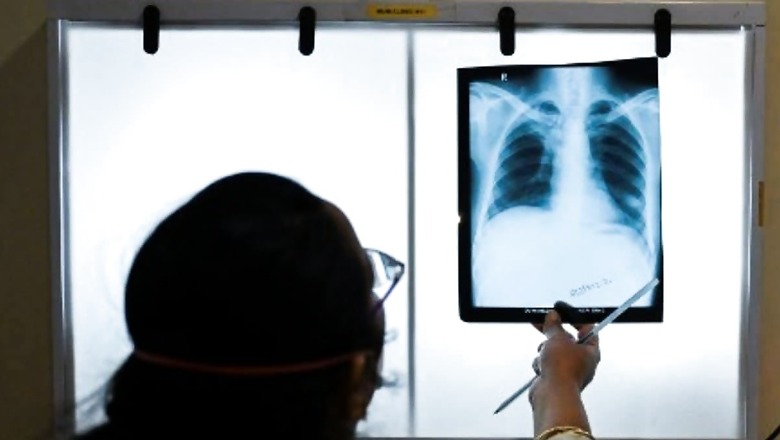
views
In a massive blow, the Indian Patent Office rejected US pharmaceutical giant Johnson & Johnson’s application to extend its monopoly on the key tuberculosis drug, bedaquiline, which is set to expire in July.
On Thursday, the agency delivered the judgment on a plea filed by two TB survivors, Nandita Venkatesan and Phumeza Tisile. Bedaquiline, the key drug used in TB treatment, is a member of the diarylquinoline class of drugs and has a unique action mechanism. The drugs work by targeting the adenosine triphosphate (ATP) synthase enzyme of the TB mycobacteria.
Developed by Janssen – Johnson & Johnson’s (J&J) pharmaceutical division – in 2012, bedaquiline received conditional approval by the US Food and Drug Administration (FDA) for the treatment of multidrug resistant (MDR) TB. A 2018 WHO rapid communication on MDR-TB treatment guidelines prioritised bedaquiline among drugs for treatment and, in 2019, it was launched in India.
“The patent application in question – for a formulation of bedaquiline – was filed in India over a decade ago, as part of standard procedures when developing new medicines,” read an official statement released by a J&J spokesperson in India.
The company said whether this patent was granted or not, a formulation patent would not have prevented generic manufacturers from developing the active pharmaceutical ingredient (API) in their own formulations after July 2023, when J&J’s API patent expired in India.
“We remain committed to supporting India’s efforts to end TB and look forward to participating in the TB high-level summit hosted by Prime Minister Modi later this week,” the statement further read.
It is a significant move for India, considering the ambitious target fixed by Prime Minister Narendra Modi of eradicating tuberculosis from India by 2025. While the patent on the drug made India dependent on drug supplies from J&J, the latest decision will pave the way for generic versions in the local market, increasing access.
The cost of the drug, moreover, is also expected to go down by at least half of what it is now. In India, the drug is procured directly by government agencies and then distributed under conditional access programmes run by state governments.
“The verdict is in favour of TB patents as the drug is considered the backbone of TB regimens, especially for all multi-drug resistant tuberculosis. Almost all the latest WHO TB drug recommendations include this drug,” said Nandita Venkatesan, two-time TB survivor and petitioner in the patent opposition case. “The other good news is that the cost of treatment will also come down and access to medicine will improve.”
“Going forward, I believe that all newer medicines should be made available to patients considering that several drugs used in the treatment of TB are high in toxicity and need better replacements to reduce lifelong suffering of patients,” said Venkatesan, who battled TB for nearly eight years and ended up with a permanent hearing loss due to drug toxicity.
Médecins Sans Frontières/Doctors Without Borders (MSF) – an international, independent medical humanitarian organisation – welcomed this as a significant step towards increasing access to the lifesaving TB drug.
It said the Indian patent law does not allow evergreening of patents and prevents pharmaceutical corporations from abusing the patent system by making minor changes that can further extend their 20-year drug monopolies. It also pointed out that moving forward, J&J must not block the supply of more affordable generic versions of bedaquiline to high TB burden countries.
It said J&J must stand by its 2019 statement from Janssen’s managing director in India, that generic manufacturers will be able to make generic versions of bedaquiline starting 2023.
“This means that the US corporation should also urgently withdraw its patents in other countries, including high TB burden countries, where the equivalent of the Indian patent application still remains,” it added.
According to the Global TB Report of 2021, India is the top contributor – at 24 percent – among 10 countries that collectively account for 74 percent of the global gap between estimated tuberculosis incidence and the number of people newly diagnosed with the disease and reported.
India also features on all three WHO global lists of high-burden countries for TB, HIV-associated TB, and multi-drug resistant or rifampicin-resistant TB to be used by the WHO for 2021-2025.
Read all the Latest India News here
















Comments
0 comment